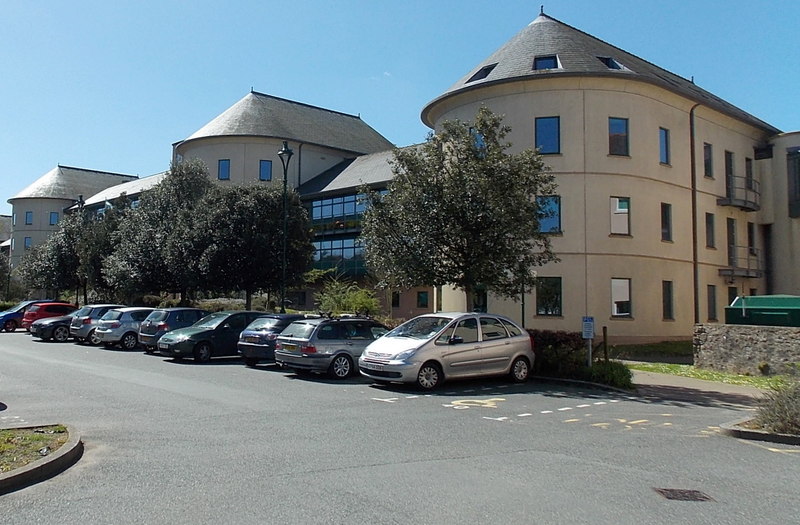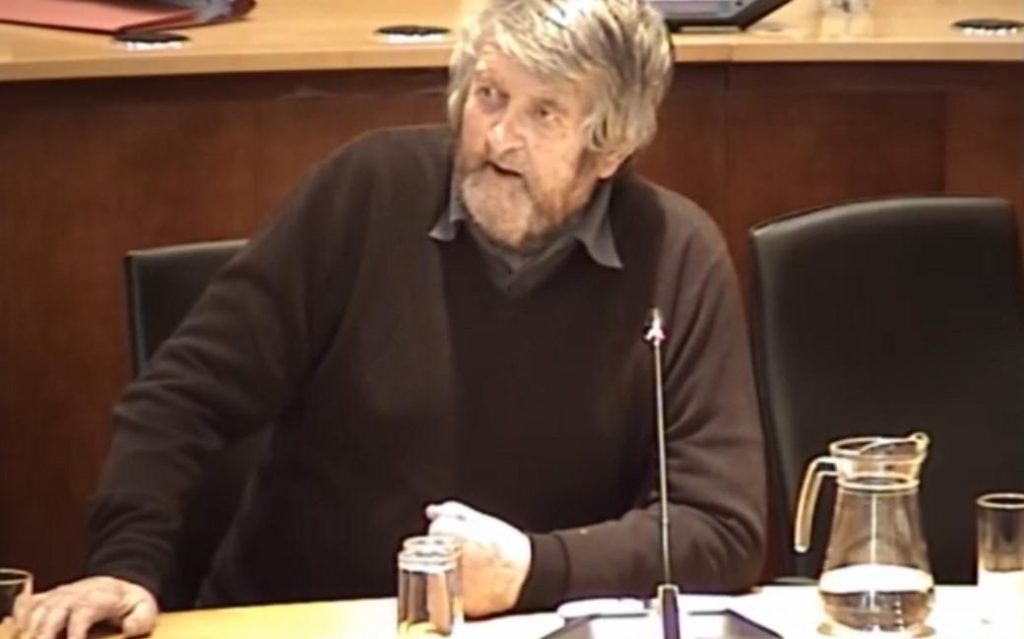Politics
Action to tackle homelessness

REBECCA EVANS, Minister for Housing and Regeneration, has published new policy documents which set out new approaches to tackling homelessness in a statement to the Assembly.
Rebecca Evans said: “Talking to those I meet, I often hear distressing accounts of family breakdown, domestic violence, mental health problems, financial problems, substance misuse and bereavement.
“These issues can lead to some people losing their homes and create a vicious cycle leading to rough sleeping.
“The recent increase seen in the National Rough Sleeper Count is disappointing in the face of our efforts and investment but I believe it largely reflects the increasing effects of continued austerity, increasing in-work poverty and welfare reforms”.
As well as new funding to their revenue settlements, councils in Wales will receive grant funding of £2.8m in 2018/19 to embed homelessness prevention best practice models which will help to reduce rough sleeping, prevent youth homelessness, improve access to the private rented sector and strengthen services for people with mental health and substance misuse problems.
Rebecca Evans AM also said: “Today I’m publishing a policy document which outlines how Housing First will be taken forward across Wales. There is strong evidence that Housing First works best where its core principles are followed – housing with no strings attached, ready and available support services and access to funds to help meet individuals’ needs.
“I’m also launching our Action Plan to reduce rough sleeping. Developed with organisations including Shelter Cymru, and members of Rough Sleepers Cymru, it covers a range of activity, supporting people to engage with services and get off the streets as quickly as possible. It also addresses wider issues such as a review of priority need and our guidance on cold weather plans.
“Rough sleeping is one aspect of homelessness. We can only truly address the issue if we have a system that offers secure housing for all. Building homes and expanding social housing stock can only go so far and I will work with the private rented sector to find innovative ways to harness their supply and meet demand. I will also be looking at how we continue to reduce the number of homes lying empty.
“The Welsh Government has a good track record of delivery on homelessness prevention and we will continue to provide the leadership to ensure we can end the need for people to sleep rough in Wales.”
Conservative Housing spokesperson David Melding welcomed the initiative, but, speaking outside the chamber, called for the Welsh Government to set a target for ending rough sleeping in Wales.
“We know that in Manchester they have set a highly ambitious target of eradicating rough sleeping by 2020, and the UK Government target is to halve rough sleeping by 2022 with targeted full eradication by 2027. I think that we should be aiming for a more ambitious target than that, perhaps somewhere in between.
“Wales has the potential to be a real leader in this area and so I do hope that the Welsh government step up and tackle this problem once and for all.”
Politics
Fears new 4G phone mast would impact on historic building

A SCHEME for a 20-metre high 4G phone mast will need a full official application due to concerns about its impact on a nearby 19th century listed building, Pembrokeshire planners have said.
Applicants Cornerstone – in a ‘Prior Notification’ application to Pembrokeshire County Council, gave notice for the mast and ancillary works scheme at Ty Mawr Farm, Station Road, Boncath.
The development would allow a shared rural network for two of the main phone operators to provide 4G connection, a report for planners said.
The council’s Historic Environment Conservation Officer has objected to the proposal due to the impact on the Grade-II-listed 19th century Ty Mawr Lodge, just under 200 metres from the site.
“The conservation officer considers that given the historical connection with Ty Mawr Farm, the track to the south of Ty Mawr Lodge would be an essential part of the building’s historic setting, as the entranceway to Ty Mawr Farm,” the report says.
“The proposal would be clearly visible along the track with intra-visible views of the monopole and lodge from the track. It has been concluded that the proposed development would have a negative impact on the setting of the listed building in its current proposed location.”
The need for a prior approval, meaning a full application, was also raised by the Ministry of Defence (MOD) as the site falls within an area within which military aircraft may conduct low-level flight training.
The report for planners concluded that prior approval is required for the scheme.
News
‘Honest’ caravan site owner ran site ‘under the radar’ for 20 years

A PEMBROKESHIRE caravan site owner who “honestly” admitted “dodging under the radar” by running his site without permission for some 20 years will not be allowed to continue doing do.
In an application before Pembrokeshire County Council’s April planning committee, Nicholas Kinahan sought retrospective permission to continue operating his caravan site with 19 touring pitches, along with caravan storage and the erection of a storage shed at Penrath Farm, Ryelands Lane, Kilgetty.
The long-running site operation, a kilometre from nearby Kilgetty, off the narrow Ryelands Lane, was discovered as part of an ongoing enforcement action.
The application was recommended for refusal on a long list of grounds including the site was in the open countryside, did not propose any community facility, was not supported by a Green Infrastructure Statement, no biodiversity enhancement features, the nearby road being a narrow single-track lane with no visibility splays for access, and concerns over foul waste disposal.
Kilgetty/Begelly Community Council has objected to the scheme on the basis of a lack of information provided within the application and access safety.
One third party representation was also received, raising concerns including a lack of information in respect of type of caravans and their use, no surface water or foul waste drainage details, a lack of an ecology survey, and no highway impact assessment.

Speaking at the meeting, farmer and caravan site owner Mr Kinahan said there were three caravans on-site after he moved to Kilgetty in 2004, housing tenants “on benefits,” with nine caravans on-site by 2010 and ‘vans from other sites stored on site later.
“We’ve done wrong and we know we’ve done wrong,” he told councillors, adding: “I can’t afford to live there without this little bit of extra income.”
Speaking on behalf of neighbour Micheal Ormond of Ryelands Caravan Park and his concerns, Andrew Vaughan-Harries – a planning agent who normally represents applicants – said to the applicant: “When I look at this application, personally, I think you’ve tried to do the application yourself.
“We see many, many problems with this application, a septic tank is not acceptable in 2024, there are lots of issues; it’s unsustainable and has to fail.”
Councillor Mark Carter said: “What can I say really? I think we’re looking at a very honest man, unfortunately in this case he’s got it wrong; he’s had a 20-year run of dodging under the radar.
“We have to respect the law and the policy and be fair to every caravan site.”
Moving the application be turned down, he said: “Much as I admire the gentleman for his initiative, I have to go with the officer recommendation for refusal.”
Councillor Rhys Jordan thanked the applicant for his honesty, adding: “I don’t think he’s tried to ride roughshod over planning, I think he’s been naïve, but I can’t support this application.”
The application was unanimously refused by planners.
Members heard the saga of Kinahan’s caravans may not be ended with a planning refusal, the option of a potential certificate of lawfulness – if he could prove the development had been in place enforcement-free for a decade-plus – being mooted at the meeting.
Committee chairman Cllr Jacob Williams said: “If you can prove it’s immune from enforcement it could be a ‘trump card’.”
News
Housing secretary plays down talk of Wales following Scotland on rent controls

THE HOUSING secretary poured cold water on suggestions Wales could follow Scotland’s lead by introducing similar rent controls, saying early indications show it has not worked.
Julie James was pressed for her views on rent controls in Scotland while giving evidence to a Senedd inquiry on the private-rented sector.
Altaf Hussain quizzed the housing secretary about affordability, raising concerns about rent rises since the pandemic, with landlords asking for big deposits and months’ rent upfront.
The Conservative warned this is leading some into unmanageable debt as he questioned whether there is a need to regulate a maximum deposit and rent.
Asked about the Welsh Government’s current thinking on rent regulation, Ms James told the local government and housing committee: “It hasn’t really worked in Scotland, I’m afraid.
“We’ve got some evidence, although it’s early days, to be fair, so we’ll want to monitor that for a longer time period. But, so far, the evidence is it’s not having the desired effect.”
Ms James pointed to a Welsh Government green paper calling for evidence on the right to adequate housing and rent control policies, with a second consultation to follow in summer.
She said: “We’re very keen to look at international examples from all over the place in terms of what works to get affordable rents into the sector.”
Ms James said she was very nervous the renters bill and leasehold reforms will not make it through the UK Parliament before a general election is called.
She warned: “We’ve got two years left of the legislative programme and the possibility of bringing a large bill through to replicate this is slim to none.”
Lee Waters, who was Ms James’ deputy until last month, said many tenants have damp or disrepair issues, but are unaware of their rights or too frightened for fear of eviction.
Suggesting the Welsh housing quality standard should be extended to the private sector, the Llanelli MS warned of a fundamental power imbalance between landlords and tenants.
Ms James criticised the UK Government for reneging on a commitment to uplift quality standards for the private rented sector at the last minute.
The housing secretary said protections under Wales’ Renting Homes Act have led to a substantial drop in evictions since coming into force in December 2022.
Mr Waters said tenants who are forced to move because their landlord has decided to sell face an average cost of about £1,700, suggesting two months’ rent should be waived.
Jack Sargeant, also a Labour backbencher, asked about pet-friendly policies, warning some homeless people face the dilemma of having a place to stay or giving up a companion.
Ms James said she was not able to pick which parts of the UK’s renters bill would apply, but she accepted an offer to be involved in “no benefits claimants” and “no children” exclusions.
She pointed to guidance that landlords cannot unreasonably refuse the right to have a pet but Ms James stressed there must be sensible limits
Recalling how she was once called to a high-rise building while working for Swansea council, she said: “We took an engineer with us and the lift kept breaking because people on the seventh floor were keeping a horse in their kitchen.
“This horse was relieving itself in the lift on the way down and it was breaking the mechanism. It was quite something to see this horse in this kitchen, I have to say.”
John Griffiths, who chairs the committee, raised concerns about a mismatch between the number of students and the amount of purpose-built accommodation in university cities.
Ms James said she has tried to persuade council planning departments they have the power to enforce better standards for student accommodation, so it can be more easily repurposed.
She admitted: “I have not been terribly successful at this but I plan to have another go.”
The former lawyer told committee members other levers will be looked at, including any unintended consequences of the council tax exemption for students.
Mr Griffiths also asked about scope for institutional investment in build-to-rent schemes, which often include shared facilities such as gyms.
Ms James said: “It’s not huge in Wales. It’s a lot less huge than it has become in England,” as she argued build-to-rent is not the solution to the housing crisis.
Mr Waters asked about low take-up of Leasing Scheme Wales, which offers incentives for owners to lease homes to councils, amid concerns the application process is “a bit of a faff”.
Ms James said the housing maintenance allowance, which has been frozen for years until the turn of the financial year in April, has been the main barrier.
She vowed to continue pushing the UK Government to say as soon as possible whether it is a one-off or if it will be uplifted next year in line with inflation.
“I think it’s pretty awful that they haven’t said so,” she told the meeting on April 24.
-

 News6 days ago
News6 days agoPolice and air ambulances at ‘serious incident’ at West Wales school
-

 Business3 days ago
Business3 days agoLargest Welsh port appoints communications and marketing director
-

 Crime6 days ago
Crime6 days agoPembrokeshire pensioner accused of 17 sexual offences against children
-

 Crime5 days ago
Crime5 days agoAll three school stabbing victims discharged from hospital, police confirm
-

 Community7 days ago
Community7 days agoCounty Hall to offer space for community banking
-

 News2 days ago
News2 days ago‘Honest’ caravan site owner ran site ‘under the radar’ for 20 years
-

 Community4 days ago
Community4 days agoSuspected explosive device found on west Wales beach
-

 Politics7 days ago
Politics7 days agoNext stage of £19m Haverfordwest interchange backed







































